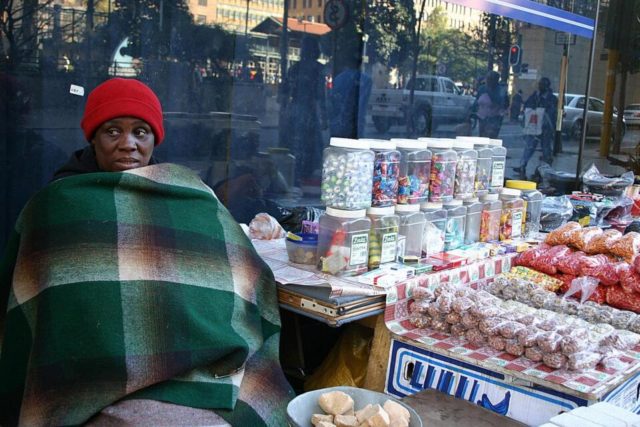‘Value of informal sector is highly underestimated’
THE GOVERNMENT’s stimulus packages and measures to limit business failures and job losses amid the coronavirus pandemic erroneously focus primarily on the formal sector while ignoring the informal economy, according to a corporate finance official.
The informal economy comprises businesses that operate in South Africa’s most vulnerable communities and are the most susceptible to the shocks of the Covid-19 outbreak.
Brett Hamilton, visiting lecturer in corporate finance at the University of Stellenbosch Business School (USB), said the value of this sector is highly underestimated, with StatsSA reporting that the informal sector accounted for 5.2% of South Africa’s gross domestic product (GDP) in 2015 and employed 2.641 million people, about 17% of all employed in 2016.
“Viewing the informal and formal sectors as two separate market participants is erroneous and has led to ineffective policy to support and develop the informal economy. What Covid-19 has shown is just how interconnected economies and markets are, and that the formal and informal sectors are no different,” said Hamilton.
“South Africa’s response to the pandemic has starkly highlighted the inequitable treatment and negative perceptions of the informal sector, which actually plays a key role in the overall economy,” he added.
Hamilton, a director at First River Capital, said that since little is known of the “shadow” economy, the sector is easily overlooked or ill-considered during policy formulation, disregarded in business strategy and too easily associated with nefarious activities.
“The view that all informal goods are counterfeit, that all traders are illegal immigrants and do not comply with regulations is anecdotal and, in most cases, false,” Hamilton said.
The informal “muti” market is estimated to be worth between R3 billion and R6 billion. There are about 120 000 spaza shops contributing between R100 billion and R200 billion per year to the economy, and the township fast-food market alone is worth an estimated R80 billion a year.
Hamilton said despite the size of the informal economy, businesses in this sector are extremely vulnerable to external shocks. While formal companies may have built up reserves, can access debt financing or can afford insurance against loss of income, informal businesses often live hand-to-mouth and thus need to operate daily to survive.
“The impact on unemployment and business continuity in this sector as a result of the public health crisis will be immediate and severe,” he warned.
Hamilton said that although the government has established the Ministry of Small Business Development to grow the contribution of SMMEs in the economy, this is mostly focused on formal businesses.
“What we need is adequate relief packages, but obvious issues include who do you include and exclude from these relief packages? How much can and should be offered? How will the funds be distributed? A lack of data makes this very difficult to solve other than to follow either a blanket approach, such as a Covid-19 grant or requiring the formalisation of applicants.”
The government has launched a spaza relief fund for stock purchases, but it comes with strict formalisation requirements. Stores are required to register with the Companies Intellectual Property Commission (CIPC), SA Revenue Service (Sars) and Unemployment Insurance Fund (UIF), and will only qualify for bulk-buying discounts from pre-approved suppliers, according to Hamilton. They are also required to submit financial records.
Hamilton said it is easy to assume that informal trade exists as a result of joblessness alone, but this does not consider its true value.
“The informal sector does act as a safety net for the formal economy, in turn enabling the unemployed and unemployable to find work or start their own businesses, boosting income and alleviating poverty,” he said.
“But it also offers goods and services in areas that may be impossible or unattractive for formal networks to operate. The co-operatives and SMMEs in these areas have an important role to fulfil.”
– African News Agency (ANA)








